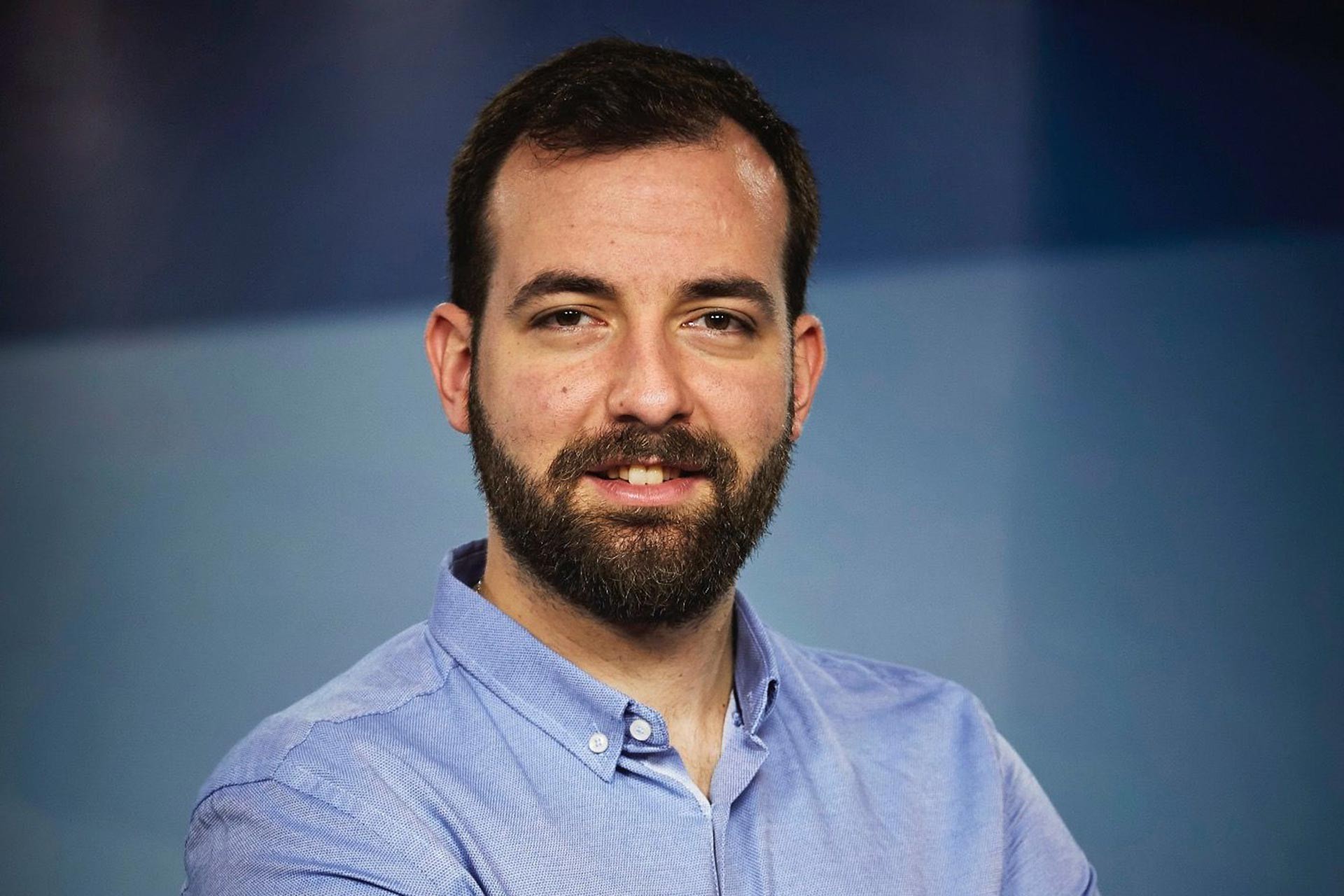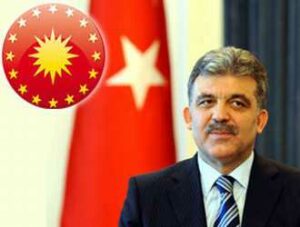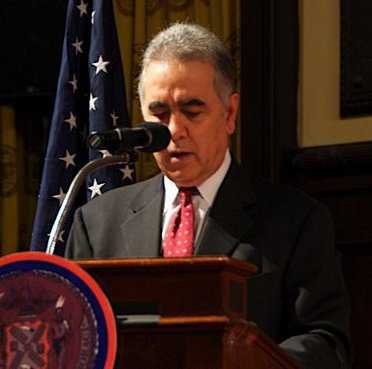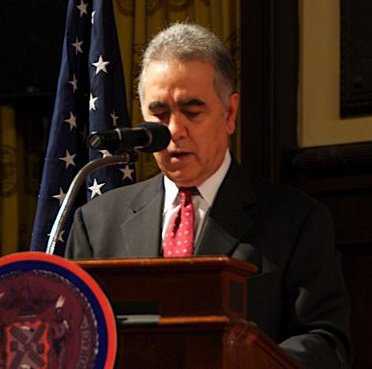THIRTEEN WAYS OF LOOKING AT A FASCIST
“Remembrance of the past helps us to understand the present.”
William L. Shirer
The Rise and Fall of the Third Reich
Numbed in their abjectitude,
The only moving thing
The eye of the young boy
Who would never be an artist.
I
I understood the infamous spiritual terror which this movement exerts, particularly on the bourgeoisie, which is neither morally nor mentally equal to such attacks; at a given sign it unleashes a veritable barrage of lies and slanders against whatever adversary seems most dangerous, until the nerves of the attacked persons break down…This is a tactic based on precise calculation of all human weakness, and its result will lead to success with almost mathematical certainty unless the opposing side learns to combat poison gas with poison gas.
Adolph Hitler, Mein Kampf, 43-44.
II
No one can accuse him [Hitler] of not putting down in writing exactly the kind of Germany he intended to make if he ever came to power.
William L. Shirer, The Rise and Fall of the Third Reich, 81.
III
No class or group or party in Germany could escape its share of responsibility for the abandonment of the democratic Republic and the advent of Adolph Hitler. The cardinal error of the Germans who opposed Nazism was their failure to unite against it. At the crest of their popular strength, in July 1932, the National Socialists had attained but 37% of the popular vote. But the 63 per cent of the German people who expressed their opposition to Hitler were much too divided and shortsighted to combine against a common danger which they must have known would overwhelm them unless they united, however temporarily, to stamp it out.
William L. Shirer, The Rise and Fall of the Third Reich, 185.
IV
In the four years since the 1928 elections, the Nazis had won some thirteen million new votes. Yet the majority that would sweep the party into power still eluded Hitler. He had won only 37% of the total vote. The majority of the Germans were still against him.
William L. Shirer, The Rise and Fall of the Third Reich, 166.
V
Between the Left and the Right, Germany lacked a politically powerful middle class, which in other countries—in France, in England, in the United States—had proved to be the backbone of democracy.
William L. Shirer, The Rise and Fall of the Third Reich, 186.
VI
It [the Republic] had, as we have seen, allowed the Army to maintain a state within a state, the businessmen and bankers to make large profits, the Junkers to keep their uneconomic estates by means of government loans that were never repaid and seldom used to improve the land. Yet this generosity had won neither gratitude nor their loyalty to the Republic. With a narrowness, a prejudice, a blindness which in retrospect seem inconceivable to this chronicler, they hammered away at the foundations of the Republic until, in alliance with Hitler, they brought it down.
William L. Shirer, The Rise and Fall of the Third Reich, 186.
VII
When Hitler addressed the Reichstag on January 30, 1934, he could look back on a year of achievement without parallel in German history. Within twelve months he had overthrown the Weimar Republic, substituted his personal dictatorship for its democracy, destroyed all the political parties but his own, smashed the state governments and their parliaments and unified and defederalized the Reich, wiped out the labor unions, stamped out democratic associations of any kind, driven the Jews out of public and professional life, abolished freedom of speech and of the press, stifled the independence of the courts and “coordinated” under Nazi rule the political, economic, cultural and social life of an ancient and cultivated people. For all these accomplishments and for his resolute action in foreign affairs, which took Germany out of the concert of nations at Geneva, and proclaimed German insistence on being treated as an equal among the great powers, he was backed, as the autumn plebiscite and election had shown, by the overwhelming majority of the German people.
William L. Shirer, The Rise and Fall of the Third Reich, 213.
VIII
Systematic lying to the whole world can be safely carried out only under the conditions of totalitarian rule, where the fictitious quality of everyday reality makes propaganda largely superfluous.
Hannah Arendt, The Origins of Totalitarianism, 245.
Hitler lost no time in exploiting the Reichstag fire to the limit. On the day following the fire, February 28 [1933], he prevailed on President Hindenburg to sign a decree “for the protection of the People and the State” suspending seven sections of the constitution which guaranteed individual and civil liberties. Described as a “defensive measure against Communist acts of violence endangering the state,” the decree laid down that: Restrictions on personal liberty, on the right of free expression of opinion, including freedom of the press; on the rights of assembly and association; and violations of the privacy of postal, telegraphic and telephonic communications; and warrants for house searches, orders for confiscations as well as restrictions on property, are also permissible beyond the legal limits otherwise prescribed.
William L. Shirer, The Rise and Fall of the Third Reich, 194.
IX
The inclusion of criminals is necessary in order to make plausible the propagandistic claim of the movement that the institution [concentration camps] exists for asocial elements.
Hannah Arendt, The Origins of Totalitarianism, 448.
The purpose of the concentration camps was not only to punish enemies of the regime but by their very existence to terrorize the people and deter them from even contemplating any resistance to Nazi rule.
William L. Shirer, The Rise and Fall of the Third Reich, 271.
From the very first weeks of 1933, when the massive and arbitrary arrests, beating and murders by those in power began, Germany under National Socialism ceased to be a society based on law. “Hitler is the law!” the legal lights of Nazi Germany proudly proclaimed, and Goering emphasized it when he told the Prussian prosecutors on July 12, 1934, that “the law and the will of the Fuehrer are one.” It was true.
Ibid., 268.
X
Journalistic circles in particular like to describe the press as a great power in the state. As a matter of fact, its importance really is immense. It cannot be overestimated, for the press really continues education in adulthood.
Its readers, by and large, can be divided into three groups:
First, into those who believe everything they read;
Second, into those who have ceased to believe anything;
Third, into the minds which critically examine what they read, and judge accordingly.
Numerically, the first group is by far the largest. It consists of the great mass of the people and consequently represents the simplest-minded part of the nation. It cannot be listed in terms of profession, but at most in general degrees of intelligence. To it belong all those who have been neither born nor trained to think independently, and who partly from incapacity and partly from incompetence believe everything that is set before them in black and white.
Adolph Hitler, Mein Kampf, 240-241.
XI
General Augusto Pinochet raped, tortured, murdered, robbed, and lied.
He violated the constitution he had pledged to respect. He was the strongman of a dictatorship that tortured and murdered thousands of Chileans. He sent tanks into the streets to discourage the curiosity of those who wanted to investigate his crimes. And he lied every time he opened his mouth to talk about these things.
Once the dictatorship was over, Pinochet stayed on as head of the army. And in 1998, when he was to retire, he stepped onto the country’s civilian stage. As I write these lines, he has, by his own order, become a senator for life. Protest has erupted in the streets, but the buoyant general, deaf to anything but the military hymn praising his achievements, proceeds to take his seat in the Senate. He has plenty of reason to turn a deaf ear: after all, the day of the 1973 coup d’état that ended Chile’s democracy, September 11, was celebrated as a national holiday for a quarter of a century, and September 11 is still the name of one of downtown Santiago’s main thoroughfares.
Eduardo Galeano, Upside Down, 193.
XII
Works of art that cannot be understood but need a swollen set of instructions to prove their right to exist and find their way to neurotics who are receptive to such stupid or insolent nonsense will no longer openly reach the German nation. Let no one have illusions! National Socialism has set out to purge the German Reich and our people of all those influences threatening its existence and character…With the opening of this exhibition has come the end of artistic lunacy and with it the artistic pollution of our people.
Adolph Ziegler, President, Reich Chamber of Art, 18 July 1937
The Rise and Fall of the Third Reich, 244.
At one period in the mid-thirties the hissing of German films became so common that Wilhelm Frick, the Minister of the Interior, issued a stern warning against “treasonable behavior on the part of the cinema audiences.” Likewise the radio programs were so roundly criticized that the president of the Radio Chamber, one Horst Dressler-Andress declared that such carping was “an insult to German culture” and would not be tolerated.
William L. Shirer, The Rise and Fall of the Third Reich, 247.
XIII
Do not interrupt. I will not tolerate interruption. I am an old man. My voice tires. Gentlemen, I appeal to your sense of justice, your notorious sense of justice. Hear me out. Consider my third point. Which is that you have exaggerated. Grossly. Hysterically. That you have made me some kind of mad devil, the quintessence of evil, hell embodied. When I was, in truth, only a man of my time. Oh inspired, I will grant you, with a certain—how shall I put it?—nose for the supreme political possibility. A master of human moods, perhaps, but a man of my time.
Average, if you will. Had it been otherwise, had I been the singular demon of your rhetorical fantasies, how then could millions of ordinary men and women have found in me the mirror, the plain mirror of their needs and appetites? And it was, I will allow you that, an ugly time. But I did not create its ugliness, and I was not the worst. Far from it. How many wretched little men of the forest did your Belgian friends murder outright or leave to starvation and syphilis when they raped the Congo? Answer me that, gentlemen. Or must I remind you? Some twenty million. That picnic was under way when I was newborn. What was Rotterdam or Coventry compared with Dresden and Hiroshima? I do not come out worst in that black game of numbers. Did I invent the camps? Ask of the Boers. But let us be serious. Who was it that broke the Reich? To whom did you hand over millions, tens of millions of men and women from Prague to the Baltic? Set them like a bowl of milk before an insatiable cat? I was a man of murderous time, but a small man compared with him. You think of me as a satanic liar. Very well. Do not take my word for it. Choose what sainted , unimpeachable witness you will. The holy writer, the great bearded one who came out of Russia and preached to the world. It is sometime ago. My memory aches. The man of the Archipelago. Yes, that word sticks in the mind. What did he say? That Stalin had slaughtered thirty million. That he had perfected genocide when I was still a nameless scribbler in Munich. My boys used their fists and whips. I won’t deny it. The time stank of hunger and blood. But when a man spat out the truth they would stop their fun. Stalin’s torturers worked for the pleasure of the thing. To make men befoul themselves, to obtain confessions which are lies, insanities, obscene jokes. The truth only made them more bestial. It is not I who assert these things: it is your own survivors, your historians, the sage of the Gulag. Who, then, was the greater destroyer, whose blood lust was the more implacable? Stalin’s or mine? […] Our terrors were a village carnival compared with his. Our camps covered absurd acres; he had strung wire and death pits around a continent. Who survived among those who had fought with him, brought him to power, executed his will? Not one. He smashed their bones to the last splinter. When my fall came, my good companions were alive, fat, scuttling for safety or recompense, cavorting toward you with their contritions and their memoirs. How many Jews did Stalin kill—your savior, your ally Stalin? Answer me that. Had he not died when he did, there would not have been one of you left alive between Berlin and Vladivostok. Yet Stalin died in bed, and the world stood hushed beside the tiger’s rest.
George Steiner, The Portage to San Cristobal of A. H., 167-169.

Sources:
Arendt, Hannah. The Origins of Totalitarianism. New York: A Harvest Book, 1985.
Galeano, Eduardo. Upside Down. New York: Picador, 1998.
Hitler, Adolph. Mein Kampf. New York: Houghton Mifflin, 1971.
Shirer, William L. The Rise and Fall of the Third Reich. New York: Simon & Schuster, 1990.
Steiner, George. The Portage to San Cristobal of A. H. Chicago: University of Chicago Press, 1981.





 As you all know, in parliamentary systems of government, the Presidents, as Head of State, stand for the state, which charges them the obligation to reflect neutrality, no matter whether they are from a political party out of the parliament. In Turkey, additionally, the President is supposed to stand for the republic and, thus, the “people of Turkey”, which enforces him to be neutral as an ethical and moral task.
As you all know, in parliamentary systems of government, the Presidents, as Head of State, stand for the state, which charges them the obligation to reflect neutrality, no matter whether they are from a political party out of the parliament. In Turkey, additionally, the President is supposed to stand for the republic and, thus, the “people of Turkey”, which enforces him to be neutral as an ethical and moral task.


